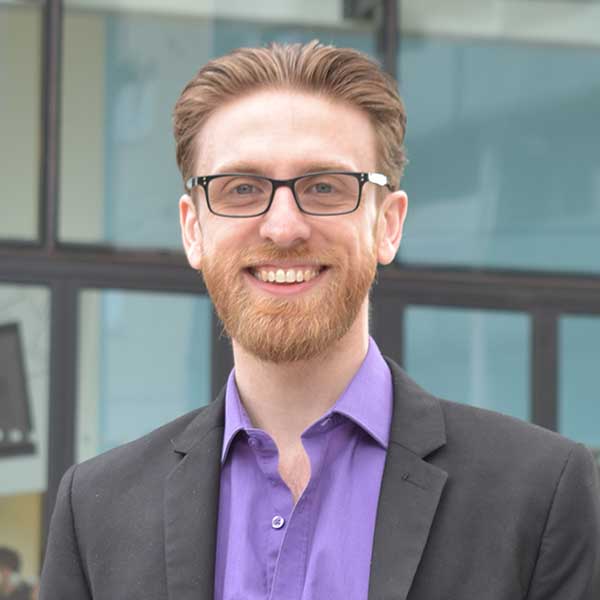After working in education Matthew decided that a career change was needed and decided to study Human Resource Management with us. Read on to find out why...
What were you doing before the MSc?
I’d already had a 10+ year career in education and, although it had given me a great skill set and experiences, my passion for teaching had slowly eroded. Therefore, I decided to retrain and move into a more business-orientated field. After a lot of research and talking to friends in different fields, I decided that HR would be a great fit for me as there was a lot of cross-over between my existing skillset and my undergrad degree in Sociology.
What made you take the programme? Why choose Strathclyde?
Strathclyde is, in my opinion, the top choice for any business degree in Scotland.
It’s widely recognised as one of the top business schools in the world and is consistently in the top UK rankings, but the real seller for me was the fact that the teaching staff are heavily involved in high-level research, so it was obvious that there would be a good balance of the academic theories of HR management and practical real-world examples of how to apply it and bring benefits to companies, managers and employees. The CIPD accreditation was a huge advantage in terms of getting hired after graduation.
What has been your experience of the classes?
Overall, the lectures on the course were very interesting, challenging and covered the whole spectrum of HR from classes on practical and business skills, to academic theories of HR, current HR research and even a lot of the criticisms of HR. One of the consistent threads that ran through the whole programme was the use of evidence-based HR and applying critical thinking, analysis and reflection to all your work, which is an approach that I’ve found extremely useful in work since. The staff were very approachable and encouraging throughout the course.
How did the course fit into your longer aspirations for study/career in the future?
My main aim from the MSc was basically to ‘jump-start’ my move into HR, and the degree was definitely a huge factor in my getting my first HR role. While I’m now in a fairly junior HR position, I can understand the broader patterns the HR function of my company and why the leadership team makes the decisions they do. As such, I’m able to challenge things effectively, proposing projects to improve the work of our team to my manager and apply that critical thinking model to my own work. As such, I’m sure that I’ll be able to break into the higher-level HR roles very soon.
Is there anything you would especially recommend about the course?
If you’re thinking about HR, I’d strongly recommend you do some research to find out if HR is a good fit for you; many people have this false notion that HR professionals are like company therapists who spend all day giving out hugs and chatting with employees to make sure everyone feels ok – the reality is quite different. If you’re more interested in this side of things, you may want to consider occupational therapy or counselling instead.
What is it like to be a student at Strathclyde and in the city of Glasgow?
I loved my time at Strathclyde; it’s a modern, research-orientated university with so many links to industry and innovation and is always hosting interesting conferences, discussion and lecturers outside of our normal classes. It definitely seems more geared towards the modern world of work than the more traditional universities, and a lot of emphasis and help is given to students in succeeding after graduation.
What advice would you give to prospective students?
It might sound cliché, but what you get out of an MSc depends on what you put into it. You can cruise by with the minimal amount of effort to pass, but you’ll be selling yourself short on developing the skills and capacities that will make a real impact on your career; in my experience, an MSc might land you a good job but you’re not going to get very far if you can’t back it up with your actual performance in the workplace. However, if you put in the effort, ask for help when necessary, and keep pushing yourself to your full potential, you’ll be gaining a lot more than just a fancy degree certificate at the end of the programme.
